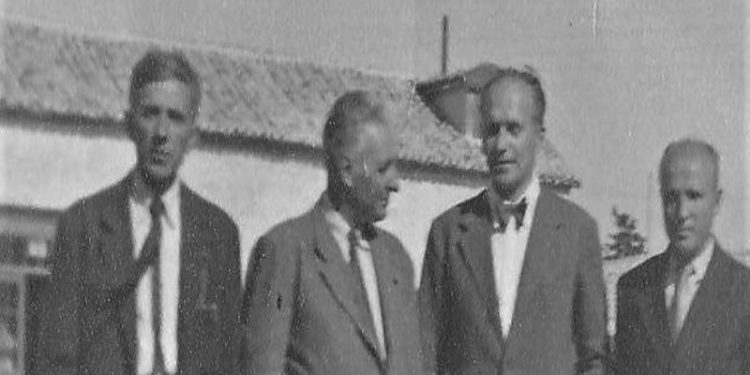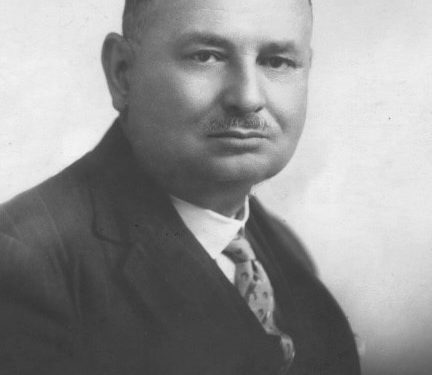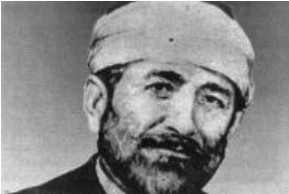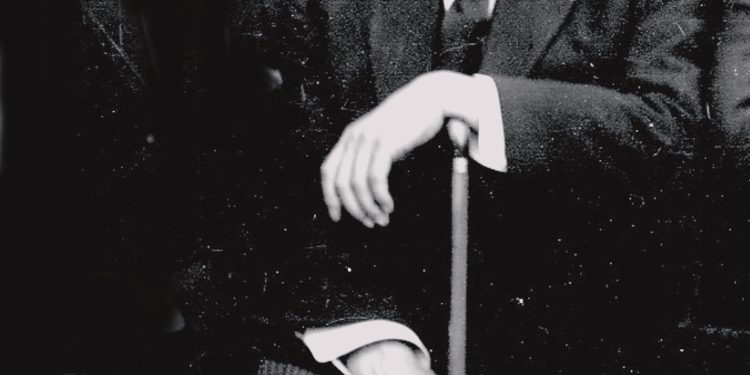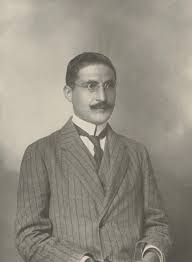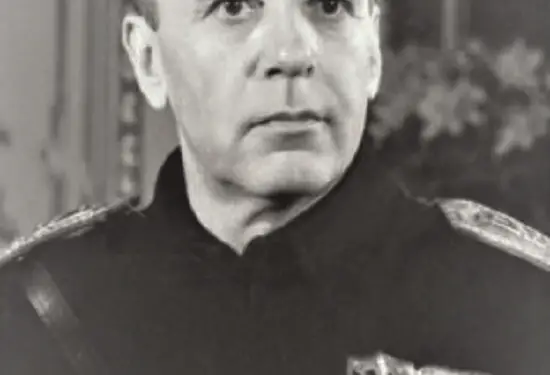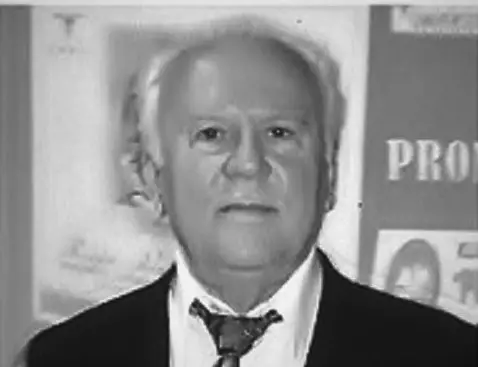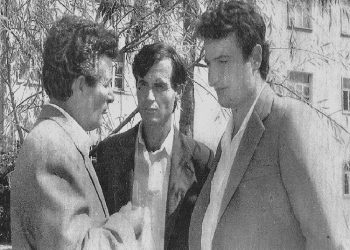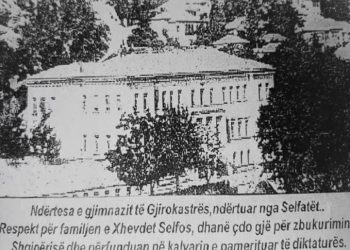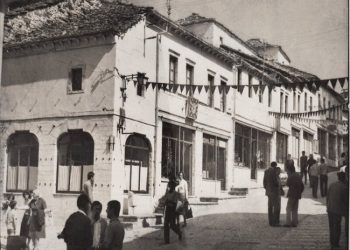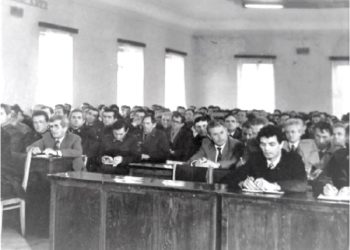Memorie.al / The secret file of the UDB, the Yugoslav Secret Service, in the years 1944-1953. This file includes detailed information on Albanian groups operating in Italy, Greece, Austria, Germany, France, England, Turkey, Syria, Lebanon, Egypt, USA, Canada, Australia, New Zealand and Brazil. The UDB file describes the Albanian emigration as having a political character, mainly during the First World War, especially with the emergence of the Frashëri brothers, Ismail Qemal Vlora, Mihal Gramenos, Çerçiz Topulli and other brave men of the Albanian nation. who fought against foreign invaders. “Even during the time of Zog’s rule, from 1924, the Albanians continued the political struggle abroad against Zog”, continues the report of the Yugoslav secret service. It says that Fan Noli, then head of the Albanian government, escaped together with his friends, first to Austria and later to the United States, where he settled in Boston.
The UBD describes that, when in 1939, Fascist Italy invaded Albania, King Zog and his followers settled in Cairo, where he formed the headquarters of his monarchist group “Legaliteti”. While, at the time of the complete liberation of Albania from the foreign invaders, at the end of 1944, about 4 thousand Albanians, who fled the People’s Liberation Army of Albania, escaped together with the German occupying troops in Italy, Austria and Germany.
Among them, according to the UDB, were some of the Albanian leaders – collaborators of the occupier, along with their supporters, as middle and low-level employees of the occupier’s apparatus. Most of them fled, via Dalmatia, to Austria, from the Western authorities, they were transferred to camps in Italy. A small number fled to Italy by sea. Most of them were settled in Rome, Bari, Naples, etc., cities that had nearby camps for accepting refugees from Eastern European countries.
Albanian emigration to Italy, in the period between the two world wars
Unlike the first Albanian emigration, which was almost Italianized, the Albanian emigration after the First World War stands out for its political struggle, especially after the departure of Fan Nol and the coming to power of King Zog. Albanian emigration to Italy was politically very turbulent.
But anyway, we will focus on the activity of that part of the emigration of that time, which was developing activities against the rule of King Zog from Italy, regardless of the pro-Italian disposition that Zog himself had.
Albanian emigration to Italy consisted of numerous political currents, which could not coordinate their activities. Each, in their own way, worked against Zogu, but without being able to eliminate the disagreements, which often led to open accounts. Thus, Colonel Shefqet Korca was assassinated in Brindisi.
Shefqeti, who was Zog’s opponent, enjoyed great sympathy among the Albanian army. In this case, the Albanian immigrants blamed the Italian government for not having done the proper investigations, just like in the case of the murder of Luigj Gurakuqi, the former Minister of Finance in the government of Fan Noli, by Ubaldo Stambolla.
The Albanian Consul in Bari, Serreqi was also involved in this affair. All these circumstances are related to the double game played by the Italian government at the time, which, while having Zogu almost under control, continued to keep the anti-Zogist immigration as a reserve, to keep Zogu constantly under pressure.
Albanian immigrants, such as: Eqerem Telhaj, Qazim Koculi and Shefqet Korça (before he was killed), waged an open war in Brindizi against the then Albanian National Bank, which at that time was one of the most important means of Italian penetration in Albania. Among the most important names of Albanian emigrants in Italy, Koço Tasi should be mentioned, who maintained ties with Albanian emigrants in Greece, especially with the Vorioepiriots. Then it was said that Tasi claimed the position of the head of their organization.
After Tase, an important place in political life was occupied by Ali Këlcyra, who at that time stayed in Greece and often traveled to Athens, as well as to the island of Corfu. He has been very active and dealt especially with the issue of bringing the Turkish prince Omer Faruk to Albania, which would be supported by almost all Albanian nationalists, thus making possible the overthrow of Zog’s regime and freedom from Italian influence. Myftar Libohova, minister in Fan Noli’s government, also stayed in Italy. He has been closely associated with the Italians.
The Zog, in various ways, tried to reconcile with the immigrants, especially with those in Italy. He invited them many times to return to the country, promising that nothing would happen to them. However, the emigrants did not trust Zogu, because he had killed many compatriots and they judged that neither the government nor the senate was able to guarantee their lives.
Meanwhile, Zogu worked with all his might to destroy immigration. Both for reconciliation with immigration and for its destruction, people with great influence worked, under the leadership of Zogut himself. In this direction, Eshref Beg Frashëri, Bajram Fevziu, etc. worked.
Zogu’s friend, Mehmet Bey Konica, was appointed ambassador to Rome at that time. On the occasion of a trip he made to Bari and Brindisi, he held meetings with immigrants, trying to reconcile them with Zogu. Mustafa Kruja and Qazim Koculi were not allowed to participate in these talks.
After this meeting, a small number of emigrants returned to Albania, among them Qazim Kokoshi (who had received Zog’s invitation through his brother, Hasan Kokoshi, who had a meeting with Zog, along with some people with reputation from Vlora).
Zogu insisted that all emigrants return, while to those who did not wish to return, he promised them a permanent monthly allowance, provided they at least left Italy.
The Italian government took measures to thwart Zog’s plans. A significant number of migrants were injured. In Bari, some from the surroundings of Gjirokastra were injured.
In Saranda, Islam Bej Prishtina, Mayor of the Municipality of Këlcyra, uncle of the well-known Ali Këlcyra, Neki Starova, former prefect of Pogradec, former popular deputy, Xelal Koprencka, former lieutenant colonel Hysni Lepenica, as well as Beqir Syla were imprisoned. , etc.
These imprisonments even provoked a debate in the Italian Parliament, where some Italian MPs asked the Minister of Foreign Affairs to question him. The Italian government informed Parliament that the arrests were made for security reasons of a “local character”.
Albanian emigration to Italy also played a significant role in the uprising that broke out against Zog on November 20, 1926, in the surroundings of Shkodra. The uprising was led by a certain Don Loro Gjoka. The emigrants in Italy, although they judged this uprising premature, when it broke out, from Zara and Brindisi, promised to help him.
Some immigrants who came from Italy on the ship “Molfeta” took part in this uprising. Even though Zogu managed to break the action of Don Loro Gjoka and others, who instigated the uprising in the tribes of Puka and Mirdita and fought hard for Shkodra, the immigrants in Italy continued to send help and support to the insurgents.
In the early days of December 1926, some emigration activity was investigated on the island of Corfu, probably under the influence of the insurrection we have mentioned. The leader of the Albanian emigration to Corfu was Xhavit Leskoviku. The links between this emigration and that in Italy were established.
The government of Zog took security measures, leaving the command of the gendarmerie of the Southern Zone, commanded by Hysni Dema, free. The gendarmerie received reinforcements, while the government requisitioned trucks for its own needs. In that sector, there were also mass incarcerations.
The Serbo-Sloveno-Croatian government and the Yugoslav Intelligence Service showed great interest in Albanian emigration, especially that of Italy. The then Yugoslav consul in Bari (1926), received 4,000 gold coins to help the Albanian emigration. At that time, Yugoslav agents began a strict propaganda to convince the Albanian emigrants to accept the monthly aid offered by Belgrade, in order to bind them to themselves.
In this propaganda, especially Doctor Anton Sadedini stood out in Italy, who acted according to the order received from the Yugoslav minister in Rome, Baluchic. The extremely difficult circumstances that existed in Albania after the First World War, high taxes and duties, corruption, the arbitrariness of the gendarmerie, the economic dependence of the country due to disorganized finances, the luxury of Zog, etc.
These led the country to complete dependence on foreign powers, especially Italy. All this was for the benefit of the political emigration abroad, which developed full activity, despite any success of the Zog and the “reconciliation” of certain people with him.
Emigration to Italy after the Second World War
The Italian penetration in Albania, after the Second World War, was carried out through all the pores of political, economic and public life, therefore, as a consequence, a considerable number of people were politically or economically connected to Italy, many Albanians studied in high schools and Italian universities, or in military academies.
All this conditioned, at different political moments, the emigration of a considerable number of people to Italy. This took on great proportions especially after the capitulation of Italy in the Second World War, or after the end of the war. In the period 1943-1945, a large number of Albanians immigrated to Italy, most of them collaborators of the Italians and opponents of the People’s Liberation Movement of Albania.
Albanian immigrants in the first years after the Second World War. lived in the camps set up by the IRO, in Italy; the largest number of them were in the “Reggio Emilia” camp. The Anglo-Americans released some of the immigrants, including 80 former high-ranking officials during the occupation, declared “war criminals”.
Now the Albanian emigrants live mainly in these cities: In Rome, mainly people of repute and leaders of parties and political currents in emigration live. It can be said without fear that most of the Albanian political emigration is concentrated in Rome.
In Bari, besides a small number of immigrants, other Albanians live – businessmen, merchants, who probably have some capital, or money that they took with them when they emigrated.
In Naples, in the camps and reception centers around it, a significant number of immigrants continue to stay, who have not yet been transferred to other states, but have not been released either, because they do not have the conditions to ensure their existence. In Florence and Milan, mostly students live, who continue their studies there, but also a small number of merchants, who are materially very well off.
Now in Italy, about 200-300 Albanian immigrants live, while their number was previously about 800, counting only those who fled during the occupation, or after the liberation of Albania, and those who happened there after the capitulation of Italy, such as students or traders.
All Albanian immigrants in Italy, with the exception of a small number, lead a rather difficult life. Part of the emigrants was helped by the IRO, the rest were helped by merchants who have their workshops and enterprises, but most of the emigration was left to the mercy of fate.
This moment was decisive in the part and existence of Albanians in Italy, this is the reason why most of them went to the USA, Australia and the countries of the Middle East. In the USA and Australia, mostly Orthodox went, while a small part of Muslims went to Arab countries. Only the leaders of the “Free Albania” Committee live well. But many reputable immigrants are in a difficult position.
Elder John Marka John and his son lead a very difficult life, live in a completely unsuitable apartment, dress poorly, smoke the worst tobacco, and live, therefore, supported only by friends. Kola Bibë Mirakaj, until recently, lived on the alms of a monastery. A few months ago, he left there and asked to be employed in a warehouse, which has not yet been completed.
He lives in the greatest poverty, among all the members of the “Independent Bloc”. Only Ismail Vërlaci leads a good life, thanks to the wealth that his father brought to Italy, as well as Ernest Koliqi, thanks to the work he has.
The Italian government, so far, has not done anything to help the Albanian emigration, it has not even resolved their employment, because in Italy, there are no jobs for the emigrants. Until its dissolution, the IRO helped the Albanian emigration, placing them in camps, while after its dissolution, the emigration remained on the streets, without any care, therefore it was forced to move to other countries.
However, the bodies of the Italian Government continue to be keenly interested in Albanian emigration. Most of the Albanian leaders who had been connected with Italy, continue to maintain constant contact with some Italian officials.
Some of them are in constant contact with some Italian officials. Some of them are in contact with the palace “Chiggi” (Italian Government). Thus, not long ago, Sait Kryeziu, Ekrem Telhaj and Asllan Koçi were received in the Kixhi palace. This year, these ties have been strengthened even more, which we can relate to the relations of our state with the Italians.
Italians cannot agree with those who in the past have been opponents of Italians, or who remained so. Thus, in April 1952, the trial took place against the Albanian immigrant, Xhelal Staravecka, accused of the wartime murder of 100 Italian Carabinieri, as well as Colonel Gamucci.
Xhelal Staravecka, completed the Military Academy in Tirana, during the time of Zog and was an officer of the Albanian Army. In 1941, he was a member of the Albanian Communist Party, but feeling marginalized, he left this party and was then appointed commander of the Gendarmerie in Tirana.
In Italy, several parties and political groups of Albanian emigration operate. The most important among them is the “Free Albania” National Committee, formed in August 1949, at the initiative of the Anglo-Americans; then the “Independent National Bloc”, formed in 1946, with the help of the Italians and the Vatican./Memorie.al
The next issue follows




